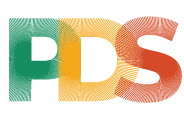In today’s fast-paced digital world, the role of Artificial Intelligence (AI) in revolutionizing digital marketing cannot be overstated. AI has swiftly transformed how businesses engage with their audiences, optimize campaigns, and personalize customer experiences. This technological marvel has not only streamlined processes but has also empowered marketers to delve deeper into consumer behavior and preferences like never before.
Personalization at Scale
AI’s big win for digital marketing is its skill at personalizing experiences. It uses smart algorithms and learning models. These tools review lots of data, straight away. They find out individual client likes, actions, and buying trends. Knowing this helps marketers customize their messages, suggestions, and deals just for each person. This increases interest and moves conversion rates up. Think about getting suggestions for items that match just right with your likes, or getting deal offers right when you’re most likely to buy. These personal touches make customers feel valued. They feel the brand relevance, boosting loyalty and long-term brand relationships.
Enhanced Customer Insights
In simple terms, tools powered by AI give marketers detailed and meaningful facts about what customers do and how the market changes. AI looks at data from many places online and spots things that people might miss. It shows changes, patterns, and how things relate. This means marketers can make good choices based on facts. For example, AI can guess what will happen in the future by looking at the past. It can spot very good customers. It can predict sales with super precision. With this knowledge, marketers can change their plans as they go, use their resources in smart ways, and grab chances before others do.
Automating Tedious Tasks
AI is a game-changer in the marketing world. It removes the burden of routine tasks, making room for creative and strategic thinking. Jobs like data entry, setting up campaigns, A/B testing, and analyzing performance? Now done by AI tools. This shift boosts proficiency, reduces human errors, and paves the way for a productive team. The scope of AI stretches to customer service with chatbots. These smart bots field customer questions, suggest customized options, and effortlessly wrap up purchases, providing flawless help 24/7. Immediate replies and fast problem-solving boost customer happiness. Plus, chatbots curtail operational expenses for businesses.
Predictive Analytics and Optimization
AI’s predictive analytics abilties enable entrepreneurs to count on future traits and patron conduct with a excessive diploma of accuracy. By reading ancient records and real-time inputs, AI can expect which advertising strategies are possibly to yield the exceptional consequences in specific contexts. This foresight allows marketers to proactively modify their campaigns, allocate budgets efficiently, and optimize content material for max effect.
Moreover, AI-powered optimization gear constantly refine advertising and marketing campaigns primarily based on ongoing overall performance metrics. From adjusting ad placements to tweaking email problem strains, those tools make certain that marketing efforts remain aligned with evolving patron alternatives and market dynamics. This agility is valuable in state-of-the-art competitive panorama, wherein staying ahead requires adaptability and responsiveness.
Ethical Considerations and Human Touch
AI is useful in digital marketing, but it comes with ethical issues. These mainly revolve around data privacy and trust from customers. Marketers need to be clear and honest with their data methods. They must respect their customers’ wishes and follow the law. Although AI is great with data and doing tasks automatically, it can’t match the personal side of marketing. The best campaigns mix AI knowledge with human creativity, empathy, and gut feelings. This mix lets the campaign connect with people genuinely. Human marketers have priceless qualities, like the ability to tell stories, understanding emotions, and being aware of different cultures. No matter how advanced AI gets, it can’t copy these human skills.
The Future of AI in Digital Marketing
Looking ahead, the role of AI in digital marketing will continue to evolve rapidly. Advancements in natural language processing (NLP), image recognition, and predictive modeling will further enhance AI’s capabilities, enabling deeper personalization and more sophisticated customer interactions. As AI becomes more integrated into marketing strategies, businesses that embrace these technologies will gain a competitive edge in delivering exceptional customer experiences and driving sustainable growth.
AI is not just a tool but a transformative force reshaping the landscape of digital marketing. By harnessing its power to automate tasks, glean actionable insights, and deliver personalized experiences, businesses can forge stronger connections with their audiences and achieve unprecedented levels of success. However, it is essential to balance technological innovation with ethical considerations and the enduring human elements that make marketing meaningful and impactful.
As we navigate this exciting frontier, the synergy between AI and human creativity promises to unlock new possibilities and redefine the future of digital marketing in profound ways.
